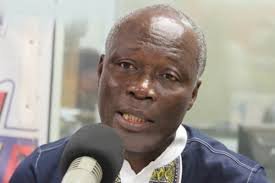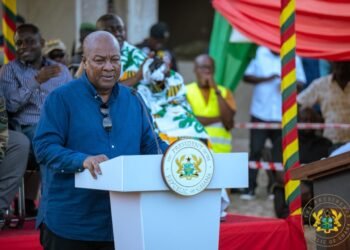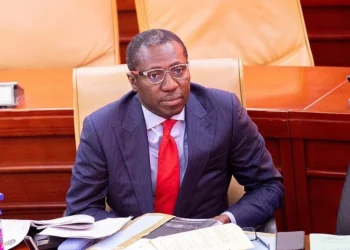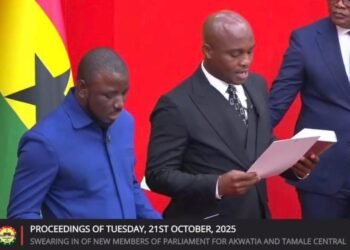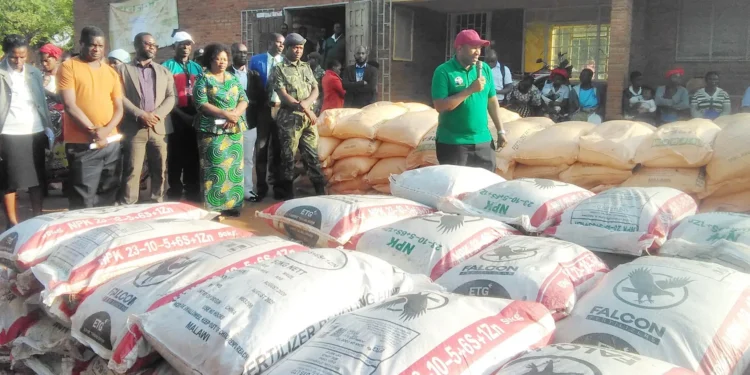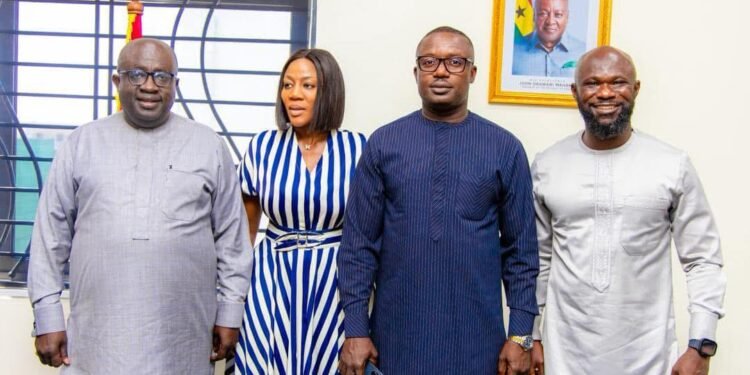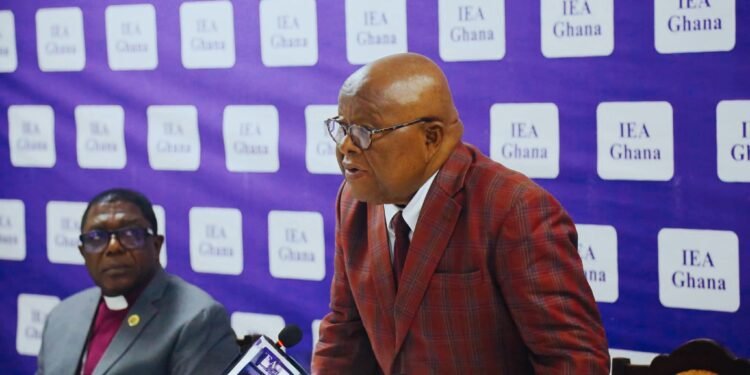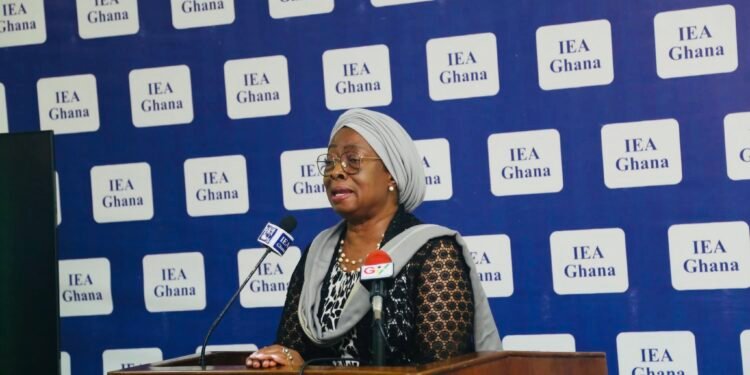As Ghana prepares for the December 2024 elections, the IMANI Centre for Policy and Education has presented a critical analysis of the manifestoes of the three major political parties; NDC, NPP and MFC vying for power.
The analysis dubbed “IMANIFESTO ‘24”, a project sponsored by the British High Commission, highlighted a pattern of vague and non-quantifiable promises, with the economy emerging as the central theme across party agendas.
“You can’t quantify them or you can’t see the specific service that they seek to offer, and so in case any of them is elected, it is very difficult for you to hold them accountable. Secondly, it is very difficult for you to even have an idea in terms of its cost and its implementation, how it is going to be done.
“And so we see alot more vague promises in the political party manifestos, which is not good and the context that Mr franklin Cudjoe made that we must pay attention to what political parties are saying, given the peculiar situation we find ourselves in”.
Dennis Asare Senior Research Associate at IMANI Centre for Policy and Education
Dennis Asare, Senior Research Associate at the IMANI Centre for Policy and Education, in his presenatation, emphasized the importance of transparency and specificity, urging citizens to scrutinize promises against the country’s pressing economic challenges, including the need for sustainable solutions to inflation, debt, and structural reforms.
Mr Asare noted that the New Patriotic Party (NPP) manifesto contains about 574 promises, adding that most of these promises revolve around the economy but lack specifics on execution and measurability.
Dennis Asare also pointed out that many of the promises of the ruling New Patriotic Party manifesto are “non-quantifiable promises” that make it challenging for citizens to assess what services will be provided and how progress will be tracked.
“So the lemon green is the non-quantifiable ones, and you see that most of the manifestos are centered around the economy. And that is mainly because of where we are. And as I already mentioned, the economy is a bigger theme that covers the macroeconomy and other things like job creation, agriculture, and others.
“Then you see that there are more non-quantifiable promises than the one that we can specifically say the service that they want to provide. So with this, we can say that there are more vague promises in that manifesto than more quantifiable ones”.
Dennis Asare Senior Research Associate at the IMANI Centre for Policy and Education
NDC’s 851 Promises Follows Similar Pattern
The National Democratic Congress (NDC), in contrast, has a higher count of promises at 851, yet follows a similar trajectory. The NDC’s focus on the economy, education, and social services mirrors that of the NPP, but Mr Asare highlighted a preponderance of non-specific pledges.
“On the NDC one too, we see a lot more non-quantifiable promises than the quantifiable and semi-quantifiable ones, which also shows some more vague promises in the NDC’s manifesto”.
Dennis Asare Senior Research Associate at the IMANI Centre for Policy and Education
This trend, he argued, limits voters’ ability to gauge the feasibility or projected impact of these initiatives. “Citizens struggle to foresee a clear picture of the outcomes promised in these manifestoes,” Mr Asare said, calling for greater clarity from political parties.
Furthermore, IMANI’s analysis examined the manifesto of the Movement for Change, a newer political group founded by a former leading member of the ruling NPP, Alan Kyerematen which also centered its agenda on economic recovery but was likewise dominated by non-quantifiable pledges.
Dennis Asare stressed that across all three manifestoes, the non-specificity of promises complicates any future attempt to hold elected officials accountable. “Without measurable commitments, estimating costs and understanding implementation mechanisms becomes nearly impossible,” he noted.
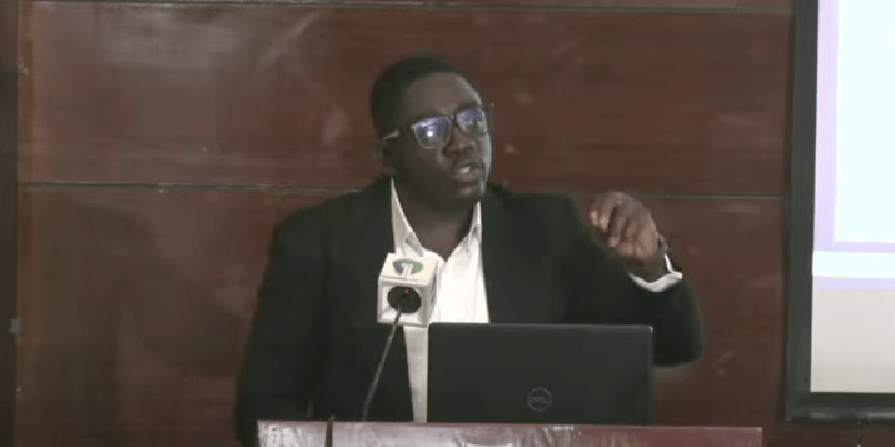
The IMF Program and Ghana’s Economic Realities
IMANI’s assessment went beyond manifesto content to analyze how these pledges align—or fail to align—with Ghana’s current economic realities. Mr Asare urged parties to address Ghana’s commitments under the ongoing International Monetary Fund (IMF) program.
According to him, the IMF’s support plan, aimed at stabilizing Ghana’s economy, emphasizes controlling expenditure, boosting revenue, and improving energy sector efficiency.
IMANI argued that election manifestoes should focus on these areas, helping Ghana meet its IMF obligations while simultaneously addressing local economic needs.
“If you look at the IMF program we’re currently implementing, the goals are clear: manage expenditure, increase revenue, and tackle energy sector issues,” said Mr Asare. However, he cautioned that most party manifestoes lack coherent strategies to meet these targets.
The Senior Research Associate of the IMANI policy think-tank, further highlighted areas of concern, such as the rising inflation rate, the depreciating exchange rate, and high lending costs, which weigh heavily on businesses.
“We’ve made some progress under the IMF, but vulnerabilities remain, especially in terms of inflation and the exchange rate,” he remarked, noting that inflation, though down to 21%, is still high compared to Ghana’s peers in the region.
Monetary Policy and Business Climate Concerns
Additionally, Dennis Asare pointed out that the recent Africa Economic Outlook report by the World Bank recommended that countries like Ghana maintain or increase the current monetary policy rate to keep inflation in check.
For Ghana, this means higher borrowing costs for businesses, with potential negative effects on growth. Mr Asare warned that the high monetary policy rate would continue to increase the cost of doing business, compounded by an array of taxes.
He expressed concern over the persistent challenges within Ghana’s industrial sector, traditionally seen as a driver of growth and employment, which has struggled since the COVID-19 pandemic.
“None of the core sectors of our economy are performing as well as they should. Our industry sector, which is critical for job creation and economic growth, is struggling, and without a clear roadmap in these manifestoes, we are missing an opportunity to set Ghana on a path to recovery.”
Dennis Asare Senior Research Associate at IMANI Centre for Policy and Education
Reflecting on the overall findings, Dennis Asare’s stressed the vague promises, calling on voters to pay closer attention to political pledges.
He argued that Ghana’s unique economic challenges demand substantive, actionable commitments. He urged Ghanaians to critically evaluate the promises made by all parties, demanding transparency and accountability as prerequisites for effective governance.
In conclusion, IMANI’s “IMANIFESTO ‘24” analysis highlights the need for a shift in Ghanaian political discourse—from broad, general promises to specific, measurable commitments that address the country’s pressing economic and social issues.
READ ALSO: IMANIFesto Examines Parties’ Solutions to Ghana’s Energy Crisis




